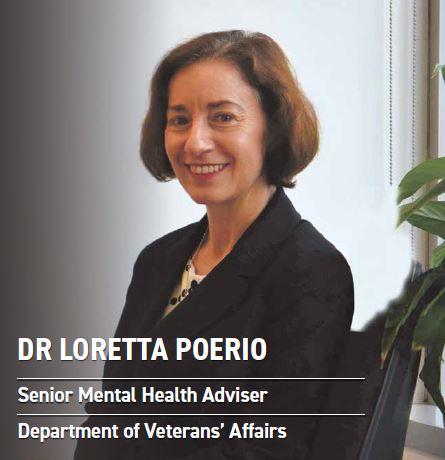Only the lonely

The words of Roy Orbison’s 1960 timeless classic, ‘Only the lonely … know the heartaches I’ve been through’ are as relevant now as they were then. Loneliness is described as distress resulting from there being a gap between your desired social network and the one you actually have. While we can all experience a sense of loneliness from time to time, some experience the distress of isolation more than others.
COVID-19 created the perfect storm for disconnection from others, which if unchecked, can literally make us sick and lead to poor mental and physical wellbeing. Loneliness has been linked to depression, anxiety and suicide risk as well as stroke and heart attacks. The negative feeling that loneliness engenders is estimated to impact one in three adults, with a recent Australian study by the Black Dog Institute finding up to 50% of people experienced loneliness during the pandemic lockdowns. Interestingly, loneliness seems to be manifested in younger (18–29 years) and older adults (65–79).
In a study of US veterans during COVID-19, having a partner and a purpose in life were found to be protective factors. Whereas not being in a relationship, pre-existing depression, anxiety and post-traumatic stress disorder, increased social restrictions and financial stress all contributed to a greater sense of loneliness.
These results are consistent with what we know more broadly, though we are still in the early days of developing ways to reduce social disconnection.
So, what can we do to build meaningful connections with others?
Our brains are programmed to live in close proximity to others, to share food and resources and to exchange ideas. This is how we flourish. Social needs have been likened to our need for food and water – not just a nice-to-have, but essential for our survival. Loneliness is a consequence of not having our social needs met, when we perceive the quality of our current social relationships to be poor. The interesting thing about loneliness is that it is a subjective state that can mean someone living a relatively solitary life can feel quite connected while another person living a highly socialised life can feel quite disconnected.
Even though we are wired to build social relationships and have evolved interesting and complex behaviours to facilitate this, some people are better at it than others. And many of us successfully form meaningful relationships and then lose them through separation, widowhood, and the ups and downs of life.
Loneliness is not a sign of vulnerability or weakness. It can happen to anyone. There is some evidence that a sensitivity to social disconnection is inherited, though a greater part is played by our environment. Social isolation, living alone, the recent death of a loved one and health issues can increase vulnerability to loneliness.
Social connection, at its core, is about those deeper connections we cultivate with people. They provide reassurance that our lives matter; that we matter. We build these connections over time through the sharing of our history; those people who were there when you played your first game of footy, bought your first car, went through enlistment training, or who provided a shoulder to cry on after a relationship breakup. These are the life experiences that build a sense of belonging and provide a belief that our life has meaning and purpose. That is the role family can play, and also close friends, and to some, it is the role the Defence Force plays or played.
Even though there is a lot to learn about what is effective in reducing loneliness, a review of interventions that aim to reduce loneliness suggested four that are of interest:
- improving social skills
- building social support networks
- increasing opportunities for connecting with others
- targeting unhelpful beliefs about social situations.
The last of these is worth a closer look. It appears that lonely people have a particular thinking style that can create a self-perpetuating negative feedback loop. Within such a loop, social situations are perceived as a potential threat. We become attuned to remembering negative characteristics of a social situation, and expecting negative outcomes in social situations. These beliefs lead to individuals being more likely to behave in ways that confirm these beliefs, which thereby perpetuates the process. Further, let’s not forget that because we all have social brains, our negative mindset impacts others, and actually has the opposite effect to the one desired – meaningful connection with others!
If this sounds like you, then congratulations, as awareness is the first step. Interventions that help build awareness of our thinking patterns, and provide ways to challenge automatic thinking, could be helpful. Cognitive behavioural therapy (CBT) strategies target unhelpful beliefs and teach us to view automatic thoughts as hypotheses to be tested, rather than facts. Open Arms – Veterans & Families Counselling and Head to Health websites have a range of apps and programs that may be helpful.
If you are concerned about your experience of loneliness, and want to talk to someone, you can seek professional assistance through Open Arms on 1800 011 046 or Lifeline on 13 11 14.
